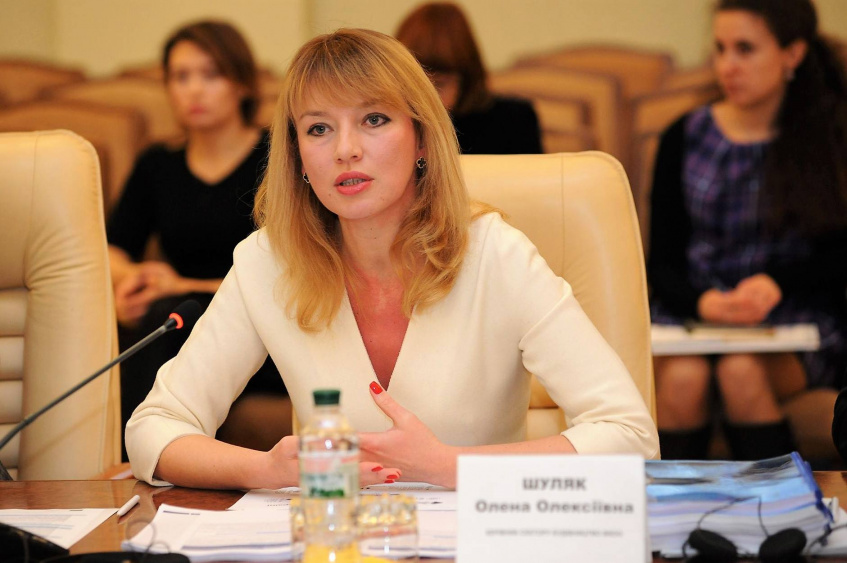
Most of the cement produced in Ukraine fails to meet national standards of strength, in some cases actually five times below required standards and posing serious safety risks for buildings, according to the Better Regulation Delivery Office (BRDO), set up in Ukraine with the support of EU4Business and the FORBIZ project.
Ways of addressing market regulation issues in the cement industry in Ukraine were discussed on 14 November at a round table, which brought together representatives of the authorities, business and the public. The discussion on ‘European Quality of Ukrainian Cement: Risk Factors’ was organised in the framework of the #PRODialog initiative by the BRDO and the Ministry of Regional Development.
Production fails to match demand
Cement is the main construction material in Ukraine, the most common binder material, as well as the main component of concrete. But Ukraine produces less cement than it consumes, and imports are increasing. According to the indicator of cement production per capita, the country occupies the penultimate position in Europe - 213kg in 2016. In comparison, Poland produces 489kg per capita and Germany 342kg.
Despite the relatively steady volumes of production, the cement market has a number of problems that can seriously affect the development of the construction industry in Ukraine. Today, there are 24 enterprises operating in the market, three-quarters of them loss-making. The cost of regulation for one cement manufacturer can reach UAH 400,000 per year.
"For this year, together with BRDO, we have planned to review the regulation of 48 construction markets,” said Deputy Minister of Regional Development, Construction and Housing and Communal Services Lev Partskhaladze, adding the cement market had great potential: “annually in Ukraine about 9 million tons of cement are produced, and these volumes do not cover all the demand. Due to inefficient regulation of the industry, the quality of building material deteriorates, and the consumer is not protected. It is important to move on to modern efficient production technologies and create conditions for access to the market for medium and small enterprises, especially in the regions.”
Need to update regulation
According to research by the BRDO, 11 of the 41 acts regulating the market need updating. Moreover, the analysis of regulatory instruments and related procedures revealed a high level of corruption risks. Current regulation hinders the development of the market and does not guarantee the protection of consumers from counterfeit products. The proportion of counterfeit cement in products with labelling impairments on the market stands at around 80%. Sixty per cent of products do not meet the strength criteria, in some cases actually five times lower than the national standard, the indicator on which the strength of building structures depends.
"The ineffectiveness of market supervision mechanisms in Ukraine, the lack of adequate accountability of certification bodies and up-to-date information on cancelled certificates, allows unscrupulous producers to supply poor-quality counterfeit cement to the market. From January 1, 2018, with the abolition of the system of mandatory certification of products of UkrSEPRO, the state will not have tools for quality control of materials for construction at all," the Head of the BRDO Construction sector, Elena Shulyak, noted.
In addition, according to the expert assessment of BRDO, the current technical regulation of the market is an obstacle to the introduction of new technologies and the entry of producers into international markets. Export potential is limited by the need to certify products according to international standards. At the moment, two certification systems exist in the cement market: outdated Soviet certificates, and European ones. This dual regulation creates numerous gaps in technical regulation and complicates the work of the market.
Harmonisation with EU standards
In the framework of the Association Agreement with the EU, Ukraine needs to harmonise national standards for construction materials with EU standards. This will contribute to the reduction of non-tariff barriers for the development of export-import operations.
"The EU Delegation through EU4Business/FORBIZ works closely with the BRDO to create better conditions for the development of small and medium-sized enterprises in Ukraine, as well as the implementation of the provisions of the Association with the EU. The cement market is one of the key sectors for the economy, given its potential for infrastructure development. Therefore, it is very important to find the best regulatory practices that can promote development," said the Head of the Department of Economic Cooperation, Social and Regional Development of the EU Delegation, Juan Mare Cabeo.
Ukraine's implementation of EU provisions to harmonise the market in construction materials in Ukraine should be completed by 2020.
Funded by the European Union under the EU4Business initiative, the FORBIZ project supports Ukraine’s reform agenda and its economic recovery by proposing a systemic, smart change to a more business-friendly environment with a particular focus on SMEs. The project seeks to steer a shift in policy towards greater recognition of SMEs and the vital role they play in economic recovery, while addressing the challenge of reducing regulatory burden and lessening risk for businesses.
